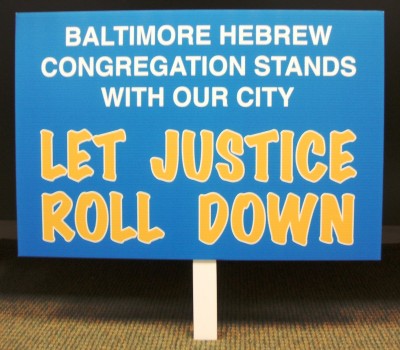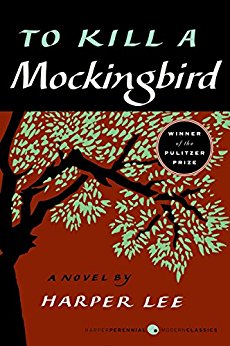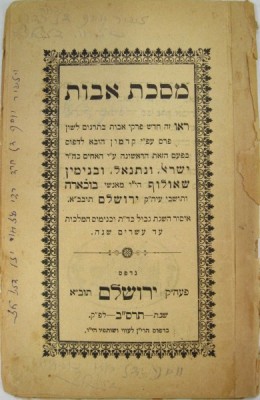A letter to my 5-year-old

This post was originally published at Huffington Post via a special series from the Institute for Islamic, Christian and Jewish Studies. For more information on this please see the statement at the bottom of this post.

Dear Daughter,
I know sometimes it feels like I’m always away at meetings. For three nights this week alone, I will not be home for dinner with you.
When you get a little older, perhaps I will bring you with me to some of my meetings. For now, I want you to know that even though it means I am not always with you, I do what I do for you. I do it because you deserve everything the world can offer; because you deserve to inherit a just world.
One day, I will have you read the open letter I wrote to God in which I describe the moment that changed the course of my life–our lives–and started me on this specific journey.
Until then, as you watch the work that I do—the meetings for Baltimore Hebrew Congregation, for Jews United for Justice, with The Open Church, and the Institute for Islamic, Christian, & Jewish Studies—the persistent, incremental, often thankless time I spend thinking, talking, reading, planning, calling, and crying for justice and fairness, I hope you are learning what it means to be a citizen; I pray you are learning what it means to be a Jew.
I want you to know that I do what I do because I am Jewish, because I feel that God and the world demand it of me. And even as I teach you what is precious to me about our inherited tradition, I want you to know others who work for justice.
I want you to know them as Muslims, Christians, and Unitarians, as Mormons, Hindus, and Buddhists. I especially want you to know the Atheists, and yes, the other Jews. You need to understand why I do what I do, even as you see that the Jewish framework that motivates me is not the only one.
When you begin to see what we have in common, and just as importantly, what is distinct for each of us, I believe you will begin to see, as I strive to, what is beautiful in all of us. You will feel what is beautiful in yourself. Our capacity to see the beauty–and pain–in others and feel it in ourselves is the divine working through us; empathy is a gift from God.
God gives us this gift to help us to fulfill God’s command “Justice, justice shall you pursue” (Deut 16:20). Justice, My Love, is fairness, but it is more than that. Justice is balance. It is the state of affairs in which everyone gets what they deserve.
Sadly, it is a rare occurrence for far too many people. You will learn, Sweetheart, that it is easy to see when justice is denied to you (even now, you already complain to me when you believe you are the victim of injustice). It can be harder to recognize injustice when it doesn’t affect you directly. What’s worse, sometimes even justice is difficult to recognize or accept if its manifestation means the loss of some privilege.
And that is why God has granted us empathy. The capacity to feel another’s pain is an important step toward recognizing, embracing, and pursuing justice when that justice is not for you.
Do not misunderstand my words. You know, Little One, that I am precise with my language. When I say “empathy,” I mean empathy. I do not mean pity. Pity is not an equitable emotion. If you are feeling pity for someone, you need to examine your heart and do what you can to move past the judgment inherent there. Pity is an emotion based on unequal power, and it does not bring the world closer to the world I want for you.

President Obama wisely reminded us of the nature of empathy when he invoked the words of To Kill A Mockingbird in his farewell address. He said:
“Each one of us needs to try to heed the advice of a great character in American fiction, Atticus Finch, ‘You never really understand a person until you consider things from his point of view. Until you climb into his skin and walk around in it.'”
This is what I want you to remember from the President’s Atticus-advice: you will never completely understand what another person is feeling, but you must try. To do so, you must believe people when they express their lived experience even when it doesn’t match yours. When you do, you will be practicing empathy, and I believe it will lead you toward justice.
In a very old book known as the Wisdom of the Fathers, or Pirkei Avot, Rabbi Tarfon is reported to have said, “You are not obligated to complete the work, but neither may you desist from it.” (2:21)

For Rabbi Tarfon, and for me, “work” is the repair of the world. The truth of his pronouncement–both that I cannot expect to complete the task and that I cannot shirk my responsibility to try–resonate for me and through me. It is the wisdom of these words that guide me, day after day, as I grapple with the enormity of the world’s grief and the limits of my own power.
Especially in the face of injustice, in the shadow of bullies, abusers, and bigots, it is easy to feel powerless. The brokenness of the world is daunting. It is overwhelming. But Sweetheart, do not be misled. I am powerful. You are powerful. We are powerful.
I have seen change happen–not earthquakes, but small shifts in attitude, in posture, in acceptance. I have felt the cumulative energy of a room full of people willing to embrace the suffering of others; embrace it and say, “I see that you are in pain and I am diminished by it.”
I do not know if the world I want for you will exist in my lifetime–or yours. I pray that it will even as I fear that it will not. Nevertheless, for your sake, for our neighbors’ sake, for your grandparents’ and your children’s sake, for God’s sake, for my sake, I may not desist.
My deepest love always,
Your mother
A blog post by Associate Director Tracie Guy-Decker. Read more posts from Tracie by clicking HERE.
The city of Baltimore is part of a national conversation around questions of justice, race and community. At this pivotal moment in our city’s history, indeed our nation’s history, the Institute for Islamic, Christian, and Jewish Studies highlights the continued importance of bringing diverse religious perspectives to address civic and social challenges. In the initiative Imagining Justice in Baltimore the ICJS will contribute the perspectives of local Jews, Christians and Muslims to the public conversation about justice, and injustice, in Baltimore. Each contributor represents her or his own opinion. We welcome this diversity of perspective and are not seeking a single definition of justice between traditions, nor denying the multivocal nature of justice within traditions. The long-term goal of the Imagining Justice in Baltimore initiative is to create a model of interreligious learning and dialogue around differences that demonstrates how a robust commitment to religious pluralism can shape public life.
